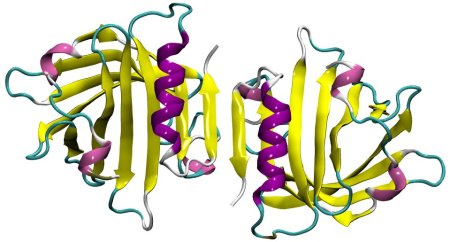Matériaux Moléculaires et Thérapeutiques
- Home
- Team directory
- Publications
- Communications
- PhD thesis
- Collaboration network
- Former group members
Equipements
- General database
- Calorimetry
- Dielectric relaxation spectroscopy
- X-ray diffraction
- Raman spectroscopy
Ongoing projects
Master Erasmus BIOPHAM
 |
BIOSTAB |
ANR « Physics and chemistry for life » 2007-2011

Scientific background and objectives:
Improving the stability of biological materials, in particular proteins, is one of the principal goals of the pharmaceutical industry today. A considerable number of therapeutically highly promising biomolecules has become available due to the significant advances in recombinant DNA technology. These potential future drugs are likely to allow the establishment of new therapeutic approaches and to significantly improve existing pharmaco-treatments. However, one of the major bottlenecks up to date is the development of appropriate pharmaceutical formulations allowing to administer these biomolecules to the patients, because they easily degrade and loose their activity during processing and long term storage.
Lyophilisation is a standard but costly procedure for preserving biological systems in the solid state, during which they are submitted to different extreme conditions (low temperature, pH, dehydration). Protective additives whose effects are still not completely understood are used to alleviate these conditions. Optimising the processes involved and preserving the lyophilised product for long periods are major problems in working out the lyophilisation procedure.
The overall goal of BIOSTAB is to carry out an interdisciplinary (physics, biophysics, pharmacy) research programme on the stabilisation of biological materials in particular proteins.
The BIOSTAB project is motivated by recent work (combined Raman scattering and calorimetry) carried out at UMET (University Lille 1 – UMR CNRS 8207) that has provided a detailed description of thermal denaturation, leading to a precise description of bioprotection mechanism of disaccharides against protein thermal denaturation.
- A first objective of BIOSTAB aims to develop the methodology established for the thermal denaturation study to the low-temperature domain, using the complementary investigation techniques available in the consortium. An important part of the lyophilisation procedure is based on empirical methods aimed at preventing cold denaturation. Understanding this phenomenon would remove a significant technological roadblock.
- A second objective is to understand the physical mechanisms of bioprotection during extreme conditions (low temperature, pH, dehydration), justifying the use of these co-solvents to obtain better stability during processing and storage of highly active biomolecules.
- A third objective is to apply the obtained new knowledge to protein-loaded pharmaceutical dosage forms in order to improve their stability. Two types of systems will be studied: (i) dry powder formulations, ready for reconstitution, and (ii) novel lipid implants for time-controlled and optionally targeted drug delivery.
Partners :
- Unité Matériaux et Transformations – UMR CNRS 8207 - University Lille1 (A. Hédoux)
- Laboratoire Léon Brillouin – CEA-CNRS Saclay (M-C. Bellissent-Funel)
- Laboratoire de Pharmacotechnie - University Lille 2 (J. Siepmann)
- Centre de Recherche sur la Matière Divisée - UMR CNRS 6619 - University of Orléans (M-L. Saboungi).

